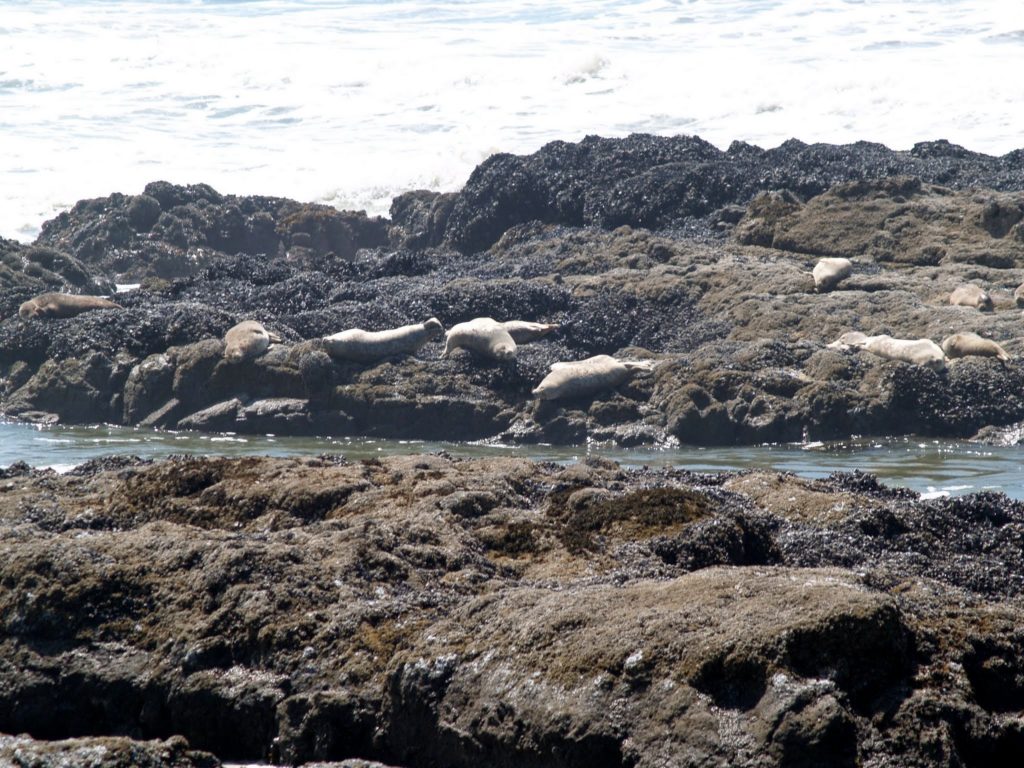
At just the right time God will speak
Nahum 1: And God has something to say about all this.
Things don’t look good for God’s purposes in the world. A wicked nation is doing very well. Their capitol city sits at the heart of incredible power and evil. God’s people are small in number and spirit. Is this the end of it all? Will sin and evil win the day? Nahum calls for calm as he declares good news for all those who love that which is good. Nineveh appears to be on top of the world, but “God has something to say about all this.” The “top of the world” position of that wicked city is a mere anthill in the eyes of God and when the Almighty acts, even that anthill will be “mowed down flat.” Through the centuries there have been many times when it seemed this world was out of God’s control and that the cause of righteousness was lost. There have been times when God’s people were speechless in the face of overwhelming sin. That’s okay. You see, even when we’re at a loss as to what to do or say, at just the right time, God will speak. What appears to us to be overwhelming circumstances is a mere anthill to the Lord. My mission in such times is, first, to keep trusting in him even when it seems evil has the upper hand and second, if he can use me, to be a part of God’s remedy for a sin-sick world.
Take Away: At just the right time the Lord will speak.
Tag: hope
Devotional on Nahum

Why Nahum preaches to the wrong congregation
Nahum 3: You’re past the point of no return.
One hundred years earlier the reluctant prophet Jonah had been ordered to go and preach destruction in Nineveh. The result was repentance and God changing his mind about destroying them. Nahum isn’t instructed to go to Nineveh but he’s given a similar message of destruction. His sermons appear to be directed to Nineveh but his audience is Judah. One reason for these anti-Nineveh sermons being preached in Judah is that the people of God are more concerned about what Assyria and its capitol Nineveh is doing than they are with trusting the Lord. They need to be reminded that, even though they see Assyria as a mountain of power that God sees it as just another anthill. The second reason for this seeming “preaching to the wrong crowd” is what’s said in this verse. In Jonah’s day the Lord hoped to spare Nineveh. They were great sinners even then, but, according to the Lord, they were more ignorant than rebellious. Because of that, the Lord was more than willing to change his mind and spare them if they would but turn to him in repentance. Here in Nahum’s day that has changed. He preaches about a nation that has pushed God too far and, for them, judgment has come. Nahum preaches sermons against Nineveh for the sake of Judah. He doesn’t preach them in Nineveh because it’s too late for them to repent. I guess the lesson for today is that as long as God speaks to our hearts, even if what he says is guilt producing condemnation, there’s still hope for us. It’s when we no longer hear from him that it’s too late. Isaiah put it this way: “Seek the LORD while he may be found; call on him while he is near.” (Isaiah 55:6 )
Take Away: As long as God speaks to our hearts there’s still hope.
Devotional on Habakkuk

The God who never fails
Habakkuk 3: Counting on God’s Rule to prevail, I take heart and gain strength.
The little book of Habakkuk is all about the prophet’s concern with how God works in the world. How can a holy God use such an unrighteousness people as those of Babylon to accomplish his purposes? The Lord answers his question, first, by assuring Habakkuk that he’s aware of sin and rebellion and that it will be judged. The second answer, I think, is when the prophet sees God, in his holiness, enter his Temple. Such a vision of God produces an awed silence and an undeniable assurance that God is God. Because of that, whatever happens will be the right thing. Habakkuk breaks out in praise, writing what might be called a “displaced psalm.” The final chorus, in particular, states an unshakable trust in the Lord. “Though the cherry trees don’t blossom and the strawberries don’t ripen…I’m singing joyful praise to God…counting on God’s Rule to prevail.” This hymn is a powerful expression of trust in God. Even when the enemy attacks, even when life takes an unwelcome turn, even when all else fails…even then I rejoice in the One who never fails.
Take Away: Even when live is confusing and painful…even then, God is God and God never fails.
Devotional on Zephaniah

A heaping helping of judgment with a little hope on the side
Zephaniah 1: This is the Day of God’s Judgment.
The book of Zephaniah is all about Judgment day. Zephaniah is focused especially on Judah but he broadens his view to include the surrounding nations and he lays a foundation for the doctrine of a future Day of Judgment of the human race. As the prophet looks around he sees a nation that’s not only committed to sin but feels secure in that sin. He, along with other prophets of God, challenges that security. He knows that people can’t ignore God and get away with it. Any comfort they have now will, in God’s time, be washed away when they’re called to give an account of themselves to the Almighty. He warns them that God says, “I care about sin with fiery passion.” Zephaniah’s message carries with it a sense of God’s anger but it also offers some hope to those who “shape up.” There’s hope in this little book, but it comes with a main course of respectful awe of just Who it is we’re dealing with and what’s sure to come to those who ignore its warning.
Take Away: Those who ignore the Lord will, sooner or later, have to give an accounting of themselves to the one they have ignored.
Devotional on Haggai

Sorting out a passage and finding at its core: grace
Haggai 2: From now on you can count on a blessing.
“Temple fever” is sweeping the nation as governor Zerubbabel and his people give themselves to the rebuilding project. One group that’s especially energized is the priests who’ve served without a Temple. They’re sure things are going to be much better once the Temple is restored. Haggai comes teach them a core spiritual truth and he does so by asking two questions. Question number one has to do with imparted holiness. If meat from a sacrifice is put into some priest’s pocket, it will make his robe holy, but what about other foods then touched by the robe? The priests respond that there’s no ripple effect concerning what other foods the robe might touch. Therefore, those foods remain unholy. The second question concerns the flip side of things. If a person touches a corpse, becoming ceremonially unclean and then touches various foods, do they also become unclean? The answer is “yes” – the “uncleanness” is imparted to whatever that person touches. Haggai then tells them that the sacrifices they’ve been making haven’t been proper because of their spiritual failure. The sin of not rebuilding the Temple has impacted all they’ve done, making them all worthless. Even as a person who touches a corpse makes all they touch unclean, so has their disobedience concerning the rebuilding of the Temple had a negative impact on all their religious practices. The flip side, which I wish Haggai had more clearly stated, is just as disturbing. Just offering proper sacrifices in the rebuilt Temple isn’t going to have the hoped for ripple effect of making the entire nation holy. It’s like the robe touched by the sanctified meat. It’s made holy but that’s as far as it goes. Touching other things with that robe won’t make them also holy. In other words, rebuilding the Temple isn’t a cure-all. Still, the prophet has some wonderful, and educational, news. From the moment they returned to God he began to bless them. His blessings weren’t a result of their making the right kind of sacrifices; in fact, they weren’t the right kind. Rather the blessings were the result of his grace. As I read this especially confusing little passage I come away with a better grasp of this truth: sin has contaminated our entire lives, making us exempt from any hope of self-manufactured holiness. Even when I return to God, my renewed commitment to him will still come up short because of the contamination of sin that has ruled my life. However, I’m not without hope because of God’s grace. He blesses me, not because I’ve managed to restore all that was broken but because he chooses to respond to my surrender to him with wonderful grace.
Take Away: The blessings of the Lord are the result of his grace.
Devotional on Zechariah

There is a fountain…
Zechariah 13: A fountain will be opened…for washing away their sins.
God’s prophet describes a wonderful day of hope when the last battle has been fought and the last foothold of sin has been purged from the people the Lord claims as his own. Zechariah envisions a cleansing fountain where people can come to have their sins washed away, their lives made clean. It was in 1772 that William Cowper penned a poem based on Zechariah’s words. Cowper had not enjoyed an easy life. He suffered severe depression and had at one time attempted suicide. Even after coming to Christ he struggled with depression. At the same time, he wrote the words to many songs of faith. His hymn based on the passage before us today is his best known. Cowper realizes that the fountain Zechariah describes flows, not with cleansing water, but with the blood of Christ. The fountain that makes “soiled lives clean” was opened at Calvary and the blood spilled there continues to wash away sins to this day. “There is a fountain filled with blood drawn from Immanuel’s veins. And sinners plunged beneath that flood lose all their guilty stains.”
Take Away: Thank the Lord for that cleansing fountain.
Devotional on Zechariah

The end and the beginning
Zechariah 14: What a Day that will be!
The prophet started out encouraging the returned exiles as they tackled the rebuilding of the Temple. He finishes his writing by looking to the future and reporting on the end of history. When things appear hopeless the Almighty will come to the rescue in what will be the final battle. The Lord will set foot on the historic Mount of Olives, just east of Jerusalem. Years after this prophecy Jesus prays on the Mount of Olives at the Garden of Gethsemane, and later, following his resurrection he ascends to heaven from the Mount of Olives. As he disappears into the sky angels deliver God’s message that Jesus will return in “like manner.” Like pieces of a puzzle revealed as the centuries pass, things fall into place. Zechariah says that when the Lord comes he’ll defeat the final enemy and when he sets foot on the Mount of Olives that it will split in half. His coming will bring all things to an end. At the same time it will begin all things anew. Then, as the disciples stand on that very same spot, angels tell them Jesus is coming back even as he has just left them. Oh yeah, Zechariah has it right: “what a Day that will be!”
Take Away: God’s people look forward to the glorious return of our Lord and Savior, Jesus Christ.
Devotional on Matthew

The sweetest invitation
Matthew 11: Come to me.
There’s no sweeter invitation than what we hear from the Lord: “Come to me.” This invitation is directed to people who are weary and beaten down by life. It’s for people who’ve tried to find satisfaction in sometimes self-destructive ways and, in the end, realize that all they have is a handful of sand. Specifically, this invitation is for people who’ve tried religion and been hurt, maybe even abused, there. To all who are hurting, disappointed, tired, and empty Jesus says, “Come to me.” It’s not about church rituals and rules; although such things have been found by many to be helpful. It’s not about turning over a new leaf, making a New Year’s resolution, or simply trying harder; although there’s room here for self-improvement. Beyond all that, though, is Jesus. I respond to his sweet invitation by giving up my own claims to righteousness and reordering all other relationships to something less than number one. In response to this invitation to “come” I turn my attention to Jesus and lay all else, including myself, at his feet. From that point on, I walk with him and learn from him, how to really live.
Take Away: Jesus is the only one who can truly make this offer, and he does make it to all who will come.
Devotional on Matthew

The way to forgiveness
Matthew 12: If Satan banishes Satan is there any Satan left?
It’s really about the Sabbath. The religious leaders have taken “Remember the Sabbath day” and turned it into a heavy burden laid on the backs of the people. Even picking a piece of fruit to eat is considered to be a transgression. Jesus responds with examples from their own law and history proving that they’re wrong. He goes on healing people, even on the Sabbath. When a demon-afflicted woman is set free the critics of Jesus sputter that he must be in cahoots with the devil. Our Lord responds that if they say that about him what do they say about their own exorcists? Beyond that, it’s a silly contention anyway. If Satan casts out Satan there wouldn’t be anything of Satan left. He then deals with the opposite side of the same coin. If the Holy Spirit is the One who forgives sins and we cast the Holy Spirit out of lives, how can we ever expect to be forgiven our sins? Its serious business isn’t it. We’re sinners in need of forgiveness. There’s one who forgives. Throw him out and we’re left without hope. Stated differently, there’s one road to forgiveness, if I refuse to travel that road, there’s no way I can ever arrive at forgiveness. The way to God is abundant and grace-filled, offering hope to the worst sinner. Still, it’s the only way. I can take it or leave it, but if I leave it, I’m left with nothing.
Take Away: We have, in Christ, hope abundant, but aside from Christ we have no hope at all.
Devotional on Matthew

When it feels like the end of the world
Matthew 24: This is no sign of the end.
The “end times” information given in Matthew 24 is hard to understand. Some of it has to do with the generation Jesus is addressing in this moment. Jesus says, “I’m not just saying this for some future generation, but for all of you.” Some of the stuff in this chapter has already happened. Still, we know that there’s been no trumpet blast and we haven’t seen the “one taken-one left” event take place. Part of the mix is that some events that feel as though they must be part of the end of the world are just common history. Jesus says reports of war, famine, and earthquakes aren’t signs of the “big event.” Of course, for those in the middle of a bombing, or facing starvation, or experiencing a major earthquake it may very likely be “the end.” However, when we hear of such things (and hopefully respond with Christ-like compassion to them) we’re not to panic, thinking “this is it.” Instead, God’s people are to trust him to be with us when we experience the painful side of life. We’re to stay true to the Lord even when we face opposition, and take advantage of the opportunity offered by unwelcome events to share the Good News with those who are desperate for some good news. I know it’s easy for me to sit in a comfortable chair and write this stuff and not so easy when the world feels like it’s coming apart. Still, if our faith is what we say it is and if it does for us what we say it does, it has to hold up even in the middle of the chaos the world sometimes throws our way.
Take Away: Not every horrible event is a sign that it’s the end of the world, but even in horrible events we can respond with compassion and hope as a people of God.
Devotional on Mark

Power packed words
Mark 5: Don’t listen to them; just trust me.
Jesus arrives in the seaside village by boat and is greeted by a large, enthusiastic crowd. One of those seeking our Lord’s attention is a respected member of the community, Jairus. His daughter is very sick and he asks Jesus to come and heal her. Jesus agrees, but along the way a woman “steals” a miracle, touching the fringe of Jesus’ clothes. This delays Jesus and, while everyone else is enjoying the miracle the woman experienced, Jairus receives the bad news that it’s too late and his daughter has died. It’s now that Jesus tells Jairus to ignore their words and trust him. The Lord goes to his home and in a private audience raises the twelve year old back to life. The words of the Lord to Jairus speak to my heart today. How often the voices of circumstance or experience sadly report that there’s nothing that will help and I might as well throw in the towel and cope as best I can. In the midst of discouragement Jesus says, “Don’t listen. Don’t give up and don’t doubt. Instead, look at me. Focus; remember who I am and what I can do. Remember that I love you and I wouldn’t let you get into this situation if I didn’t have the authority to see you through it. Trust me.” These brief words to Jairus are packed with power and hope.
Take Away: Remember who Jesus is; look to him even in the impossible moments of life.
Devotional on John

Thirsty?
John 7: If anyone thirsts, let him come to me and drink.
One of the big events in Jewish life in this day is the feast of the Tabernacles. Everyone moves outdoors for the event, camping out, and there are special worship activities at the Temple each day. Jesus is here, teaching at the Temple and many believe he’s the Messiah. On this last day, as the priest pours water mixed with wine on the altar Jesus shouts out: “If anyone thirsts, let him come to me and drink.” Jesus offers to all who will come what’s being symbolized at the altar. What an offer it is. To the weary one who has been worn down by their journey in life he offers himself as the Living Water. To the bruised one who has tried other things that promised satisfaction only to be disappointed and scarred by their effort Jesus calls out “Come to me.” To those hurting, confused, and broken Jesus offers healing, understanding, and wholeness. To you and me Jesus extends the invitation to come and be satisfied.
Take Away: The only one who can really satisfy our lives invites us to come and receive what only he can give us.
Devotional on Acts

Acts 2: Get out of this sick and stupid culture!
It’s the Day of Pentecost. Those in the Upper Room have received the Promise of the Father. The power of the Holy Spirit flows out of them and they proclaim the Good News of Jesus with authority they’ve never had before and in languages they’ve never spoken before. Thousands come running to see what’s happening and Peter preaches his Pentecost sermon. Good people hear this message and are alarmed that the Messiah has come, been executed, and has risen from the grave. Is it too late for them? Has the long awaited Messiah come and they missed the boat? Pleading, they ask, “So now what do we do?” Peter’s answer is this: “Change your life…turn to God…be baptized…receive the gift of the Holy Spirit.” A corrupt, Christ-denying culture has brought them to the brink of disaster. Their only hope, Peter says with Spirit-filled confidence, is to “get out of this sick and stupid culture.” This message of both warning and hope is still the one people need to hear today. Our culture of self and materialism is destroying our souls. We’re on the brink of eternal disaster. Our hope is in the resurrected Savior of the world. The message of God to this generation is the same as the one Peter gave to his so long ago: “Repent, turn to God, be baptized, receive the Holy Spirit.”
Take Away: There’s a way through to God and that Way is named Jesus
Devotional on Acts

Midnight visitations
Acts 23: That night the Master appeared to Paul: “It’s going to be all right.”
Paul, the former pursuer and persecutor of Christians is now himself, a Christian who is pursued and persecuted. When similar pressure broke out in other places the believers have secreted him out of town and out of danger. Now, though, he’s held prisoner by the Romans. When forty or more men take an oath to kill Paul the Romans take action similar what has been done before; they move him out of town. Paul, at the center of this whole storm, is surprisingly calm and filled with hope. Why? It’s because he’s heard from the Lord that “It’s going to be all right.” His confinement has just begun and things will get worse. How many times will he return in spirit to that night at the Roman garrison in Jerusalem when the Master, himself, came to encourage him? This visitation of the Lord will become his anchor as the storm of adversity crashes down on him. We not only need some midnight visits from the Lord as we deal with the issues of life, but we also need to cherish them; to remember them and draw strength from them. Then, as the storm’s fury is unleashed on us we can draw from those midnight visitations and be strengthened to perseverance and peace.
Take Away: We not only need some midnight visits from the Lord as we deal with the issues of life, but we also need to cherish them as well.
Devotional on Romans

Grace extended to both insiders and outsiders
Romans 3: Out of sheer generosity he put us in right standing with himself.
The Jews, Paul says, have a special relationship with God. They’re the writers of Scripture, introducing God to the world. That’s a place of great honor, but it’s no guarantee of salvation. Not only that, but these custodians of God’s Word have, themselves, failed to live according to it. Meanwhile, the outsiders have gone their own way. Ignorant of God’s commands, uninterested in his ways, they too have failed. The result is “that we’re sinners, every one of us, in the same sinking boat with everybody else.” So now what? Those with the inside path to God haven’t followed it and those on the outside haven’t found it. Hope for salvation has to come from, not within, but from outside of humanity. Enter Jesus. Through him the remedy for failure and sin is offered. The Jews need him because they’ve rejected what they knew God wanted. The outsiders need him because they’ve never started down God’s path in the first place. The generous provision of God is his making a way to life for all people, Jews and non-Jews alike. The hope of salvation, then, is in this wonderful expression of God’s grace to a lost human race.
Take Away: For those who know the law but haven’t kept it and for those who never kept it because they never knew it, that is, for all of us, our only hope is God’s grace.
Devotional on Romans

Message-proclaimers
Romans 10: Grand processions of people telling all the good things of God!
Paul quotes the prophet Isaiah all through this passage. In his day, Isaiah extolled the value of messengers who went from place to place proclaiming the message of hope to their generation. That, he says, is a beautiful thing. Paul is sorry that the people of Israel of his day aren’t the “message-proclaimers.” They’ve had every opportunity to play that role but instead insist on doing things their own way. They’re the losers in that. Now, I read this scenario and think about my own generation. Like the messengers of Isaiah’s day, the Church has Good News. We should be happily “telling all the good things of God.” All too often though, like the people of Israel of Paul’s day, we’ve retreated to our church buildings and busied ourselves with committees and programs, hanging our shingle outside inviting those want to know more to come on in. Beyond that, we’ve divided up into different camps, drawing lines and building walls. We’d rather argue over finer points of the Bible than go next door to offer a cup of cold water in Jesus’ name. Isaiah reminds us that it’s a beautiful thing when God’s people take the Good News to those who need it so desperately. Paul, though, reminds us that it’s possible for those with the Good News to fumble and fail. Does this kind of thinking alarm us? It should.
Take Away: Who do I know who needs the Good News?
Devotional on Romans

You aren’t down for the count
Romans 11: Are they down for the count…the answer is a clear-cut no.
The people of Israel, Paul says, have, in general, messed up royally. They had an inside track to God but rejected him. Because of their disobedience and unbelief they’ve been cut off and are no longer connected to the “root” of God’s love and faithfulness. The Lord, who specializes in taking bad situations and turning them into good ones, has used their rejection as a way to open the door for all peoples of the world to come in. When an “outsider” believes in Jesus that person is grafted into the “vine” of God’s grace. In this the outsider becomes an insider. Now, what of those people of Israel who became dead to God because of their unbelief? Is it too late for them? Is their permanent loss a sad necessity that the way to God be opened for the non-Jews? Paul answers, “No way!” He serves a God of Second Chances and even now the Lord’s working out a restoration for those who’ve been cut off. In his plan it’s never been “Jews verses Gentiles.” The Lord’s working right now to bring salvation to all, grafting in all who will come, making them part of his family. Isn’t this good news! The Gentiles have never known God, but now a way has been made for them to connect to him. The people of Israel have a long history with God but blew it. Still, God works to bring them back home. Maybe you were raised in church and knew the Lord as Savior at one time but now all that’s past tense in your life. I have Good News for you. As it was for the people of Israel who messed up royally there remains hope. Right now the Lord invites you to return and be reattached to the vine of his mercy, love, and grace. Even if everyone else has given up on you, God hasn’t.
Take Away: God is the God of Second Chances.
Devotional on 1 Corinthians

The heart of the matter
1Corinthians 15: It’s resurrection, resurrection, always resurrection.
Even a casual journey through this book of the Bible convinces us that the church at Corinth is a troubled church. Paul has received word of all that’s happening there and in this letter he takes on the most outrageous problems and promises to deal with other issues in person. Apparently, he’s saved his biggest concern for last. Some in the church are beginning to doubt the Resurrection. He warns his readers stay away from such talk and launches into a reasoned defense of this core doctrine of Christianity. At the heart of it is simply this: if there’s no resurrection, Jesus isn’t resurrected and if Jesus isn’t resurrected we’re still in our sins. Resurrection is, for believers, vitally important. Our hope of salvation is in it and our hope for eternity rests on it. All the other problems at Corinth are minor in comparison to their wavering on this key point of faith. The Apostle says he wouldn’t be out on the front lines taking the hits if he didn’t believe in the resurrection. The resurrection defeats sin in our lives today and, in the end, it defeats our final enemy, Death. I’m thankful for this reminder today. Life tends to wrap us up in an ever tightening grip. Even “being a Christian” gets loaded down with non-central stuff like committee meetings and various activities that are fine but not central. A reminder like this refocuses our priorities, taking us back to that which really matters.
Take Away: Christianity without the Resurrection is something other than Christianity.
Devotional on Galations

Jesus only
Galatians 3: Anyone who tries to live by his own effort, independent of God, is doomed to failure.
It’s astounding to read the writings of this once exemplary Pharisee as he takes on the failure of rule keeping. Paul was, at one time, a Pharisee’s Pharisee. He was cheered for his dedication to a thousand-and-one rules; zealous for that way of life to the point that he hunted down and imprisoned any who threatened it. Now, years later, he’s making a lawyerly case against that approach, urging his friends at Galatia back from the brink of yielding to a “Jesus-and” approach to God. When a past Pharisee says rule keeping dooms a person to spiritual failure I’m wise to listen. Paul says the key to spiritual life isn’t trying harder, rather it’s trusting God more. He says this secret has always been out there, hidden in plain view. After all father Abraham is counted as righteous, not because he’s so good at always doing just what God wants (in fact, he’s notoriously bad at it) but rather because he trusts God. Rather than creating a human powered way to God the rules prove to me once and for all that that approach will never work. I’m left in a hopeless condition unless a superior way is made available to me. And that’s exactly what happens. Jesus, the Son of God, accepts my failure as his own. What rule keeping can’t do, he does. The door to righteousness is opened wide. To surrender to a “Jesus and” approach is to take a step backward to a failed system. My hope is firmly fixed on “Jesus only.”
Take Away: There’s no other way to God than through faith in Jesus.
Devotional on 2 Thessalonians

The Antichrist and the last days
2Thessalonians 2: Don’t let anyone shake you up or get you excited over some breathless report or rumored letter.
The congregation at Thessalonica is, in the words of Elvis, “All shook up,” over some gossip that Paul says Jesus has already returned and they’ve missed it. Paul reminds them of what he told them about this topic while he was with them. The events surrounding the Second Coming will be too big to miss. Two huge, worldwide events will dominate all else: a great Apostasy and the rise of a very bad person who’ll pretend to be God Almighty. The spirit of this personification of evil is already evident in the world, so they already have an idea of what it will be like but when the real deal comes no one will be left wondering whether or not “this is it.” The Apostle hurries to reassure them that everything’s going to be okay. Just when it seems all is lost Jesus will appear and without any difficulty at all, will handle this bad guy. Paul tells his readers he’s not all that concerned about this stuff. After all, he has bigger fish to fry. Just what is that? Why, it’s putting his time and energy into thanking God for what he’s doing and is going to do in their lives. So, what am I to do with “end days” concerns? I’m to be aware that some bad things are coming to the world. I’m to remember that Jesus is coming back and he’ll handle it all with ease. Especially, I’m to keep my eyes on the Lord and use my energies in living for him and in him and not let myself get worked up over stuff I barely understand in the first place.
Take Away: I trust the Lord, not my knowledge about how everything will happen at the end of time.
